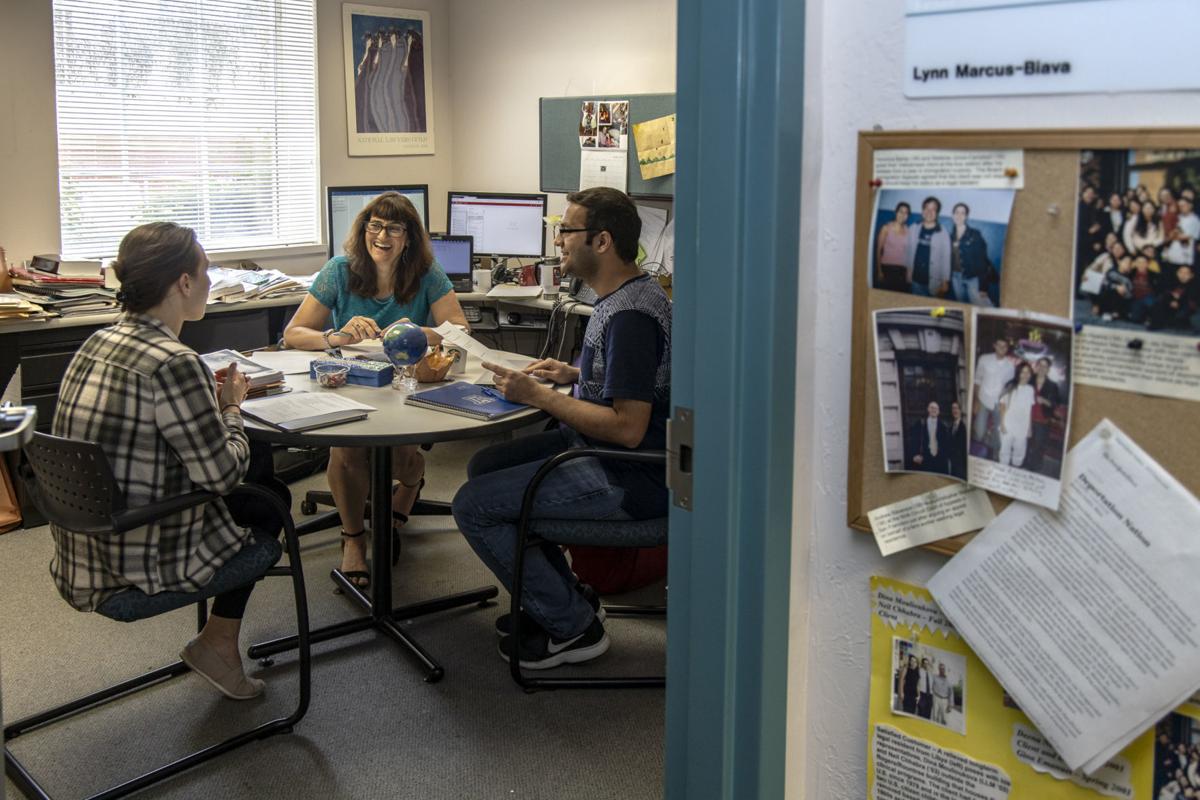A law clinic at the University of Arizona provides free legal assistance to immigrants while also giving students critical learning experience.
The clinic is offered to UA law students for course credit, and has both classroom and casework components. The classroom component includes discussions involving ethics, interviewing, brief writing and preparing for trial, along with how to deliver bad news in an efficient and compassionate way.
The director of the clinic, Lynn Marcus, said that the Trump administration has increased the discussion of the latter classroom component.
“There were some semesters where we didn’t have any bad news to deliver, but with the Trump administration, it’s all bad news,” said Marcus. “Everything is hard, everything is a lot more work and unpredictable. The advice you give is loaded with caution and caveats.”
Marcus, who created the clinic in 1995, said that the different administrations have a large effect on the type of cases the clinic sees. She pointed to the Obama administration, which set law enforcement policies on who would be removed and de-prioritized immigrants who had lived in the United States for a number of years without a criminal record.
The change in administration has led to a rise in asylum cases. In addition to the asylum cases, the clinic has taken several human trafficking cases.
One of those cases was a labor trafficking case, during which the client described the abuse he endured. Because of the man’s previous immigration issues, the Star is not identifying him by name.
“They didn’t pay me, they insulted me, threatened me, and harassed me,” he said, adding that his troubles did not end when he quit. “I had to pay rent, I had to feed my kids, I needed to find a way to get paid.”
After several referrals, he found himself at the immigration law clinic. After the clinic took his case, the client was able to receive a work permit, put in his application for residency last year and finally received his green card.
“The clinic rid me of all my suffering,” he said. “Now I have social security, I have a driver’s license, I bought a car — it’s old but it’s mine. All without fear. That is the most important thing.
“I go out without fear, and that’s the most important thing. All thanks to the work of the program.”
This year, the client was able to take his children to see the Colorado river for the first time and visit his home country of Mexico for the first time in 15 years.
Like this case, most of the cases come to the legal clinic by referrals from other agencies.
Marcus will consult with the agencies on which cases would be beneficial for the client and student. Once the cases are selected, two students are assigned to work on the case. The casework includes conducting legal and factual research, gathering documents and preparing the written application and other supporting material for the case.
For cases that involve a hearing, students also prepare witnesses to testify in court and represent the client at the hearing. The students also participate in two consultation sessions with immigrants, often those who are in removal proceedings. The consultations include interviewing the immigrants individually and educating them and aiding them in their options.
Marcus said that a large part of their mission is providing immigrants with high-quality representation, and providing a quality and thorough education to the students is the other part of that mission.
“An important part of what we do is to help with the manpower and the expertise of people who know how to put together a case thoroughly and how to fight the good fights,” said Marcus. “We’re producing people who have a fire in the belly about helping immigrants.”
Sameehan Phatak is one of those students. Phatak is a second-year law student whose passion for immigration law came through his own experience immigrating to the United States from India in 2014.
“I found the whole thing very fascinating. I can empathize with the struggles of moving forward within the system,” said Phatak. He continued, “It was my experience that inspired me.”
Looking ahead, the Immigration Law Clinic will merge with the Workers Rights Clinic. The name of the clinic will change to the Immigrant Justice Clinic, and the structure of the class will be adjusted. But there will be no change in the quality of representation.
“In the end, without strong representation, everything unravels,” said Marcus.





